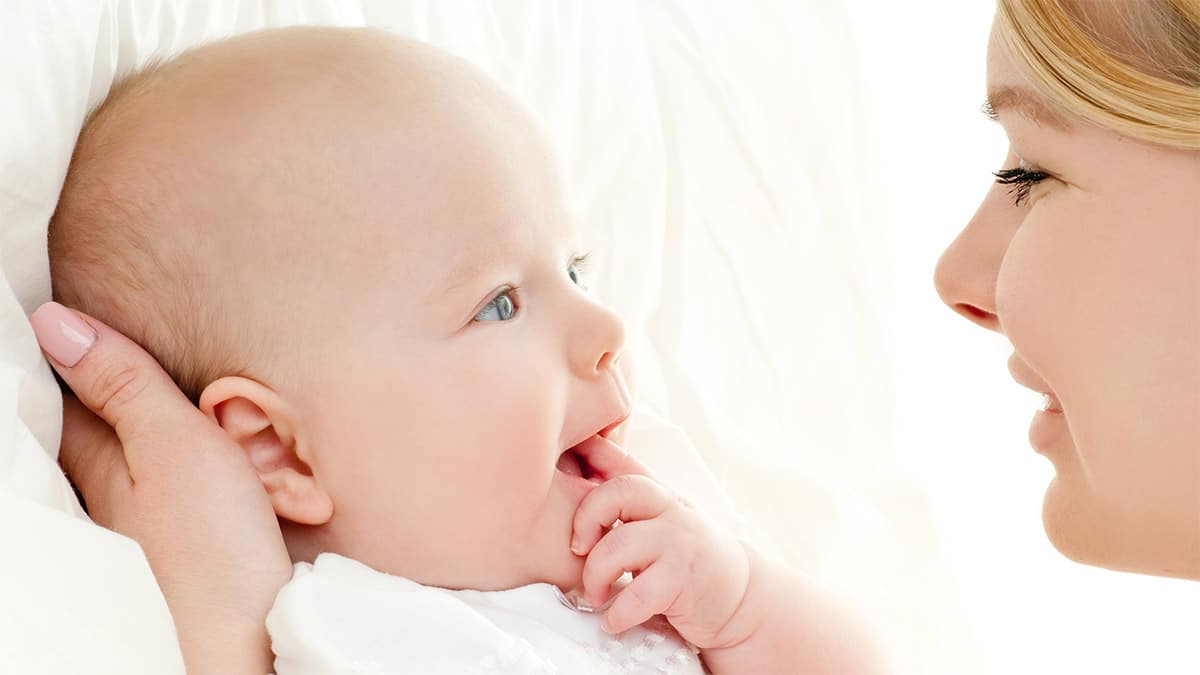 Source: bing.com
Source: bing.comAs a new parent, you may have heard that baby talk, also known as “parentese” or “motherese,” is harmful to your child’s development. But is that actually true? In this article, we’ll explore the pros and cons of baby talk and whether or not it can harm your child’s development.
Table of Contents
What is baby talk?
Baby talk is a type of speech used by adults when talking to babies and young children. It involves using a higher pitch, exaggerated intonation, and simplified vocabulary. This type of speech is also known as “parentese” or “motherese” and is used by parents and caregivers around the world.
The pros of baby talk
Baby talk has its benefits, especially for infants who are just starting to learn language. Some of the pros of baby talk include:
- It helps babies develop language skills: Using exaggerated intonation and simplified vocabulary helps babies learn the sounds of their native language and begin to understand how words work.
- It enhances bonding: Talking to your baby in a gentle, sing-song voice helps establish a connection and bond between you and your child.
- It can soothe babies: The sound of your voice, especially when using a sing-song tone, can have a calming effect on babies and help them feel secure.
The cons of baby talk
While baby talk has its benefits, there are also some potential drawbacks to consider. These include:
- It may delay language development: Some research suggests that using baby talk exclusively may delay a child’s language development, as they are not exposed to more complex language structures.
- It may limit vocabulary: Using simplified vocabulary may limit a child’s exposure to a wider range of words and concepts, which could impact their language and cognitive development.
- It may not be appropriate in all situations: Using baby talk in public or around other adults may be perceived as unprofessional or infantilizing.
What should you do?
So, what should you do as a parent? The answer is simple: use a balance of baby talk and adult speech. Speak to your child in a warm, loving tone, but also use proper grammar and a wider range of vocabulary. This will expose your child to varied language structures and help them develop their language and cognitive skills.
Additionally, it’s important to speak to your child in a way that’s appropriate for their age and developmental stage. As they get older and their language skills develop, you can gradually introduce more complex vocabulary and sentence structures.
The bottom line
In conclusion, baby talk has its pros and cons, but it’s not inherently harmful to your child’s development. As a parent, it’s important to use a balance of baby talk and adult speech to help your child develop their language and cognitive skills. By speaking to your child in a warm, loving tone and exposing them to varied language structures, you can help set them up for success.
Frequently Asked Questions
What age is appropriate to stop using baby talk?
There’s no set age to stop using baby talk, as every child develops at their own pace. However, as your child’s language skills develop, it’s important to gradually introduce more complex vocabulary and sentence structures to help them continue to grow and learn.
Can baby talk delay speech development?
While using baby talk exclusively may delay speech development, using a balance of baby talk and adult speech can actually enhance language development by exposing your child to varied language structures and vocabulary.
Is it okay to use baby talk in public?
Using baby talk in public may be perceived as unprofessional or infantilizing, so it’s generally best to use a more formal language style in public or around other adults.
How can I help my child develop their language skills?
To help your child develop their language skills, it’s important to talk to them often and use a variety of vocabulary and sentence structures. Reading to your child and exposing them to a wide range of books, songs, and educational materials can also help enhance their language and cognitive development.
Is it okay to use baby talk with older children?
While baby talk is typically used with infants and young children, it may not be appropriate or effective with older children. As your child gets older, it’s important to adjust your language style to match their developmental stage and language skills.
